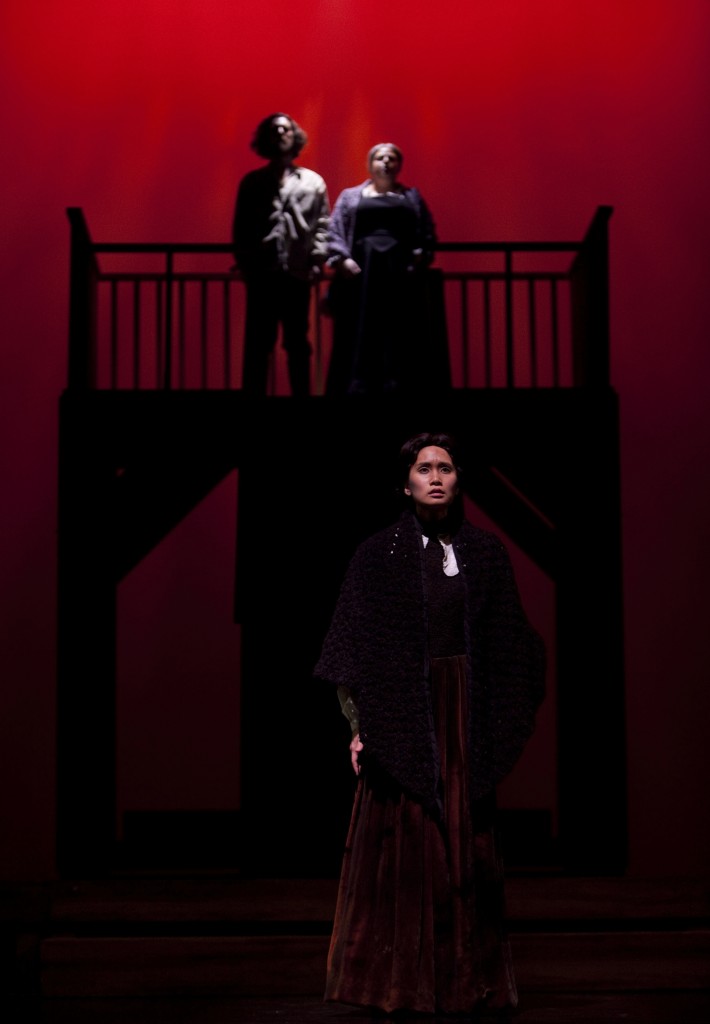LLOYD DYKK —Fear, paranoia, and prejudice have kindred dynamics and they define what happens in Arthur Miller’s witch-hunt play The Crucible, virtually laying a blueprint for a 1950s political witch hunt.
The time of the play’s creation was ripe for allegories about witchcraft, since Joseph McCarthy and his House Un-American Activities Committee stooges were themselves unwittingly creating a breeding ground for the hysteria of popular opinion. The play saw the light of day in 1952 and in 1961 the opera, which the American composer Robert Ward based on it, came out at New York’s City Opera. The opera has been widely produced in the United States, largely by unpaid university casts like the one mounting the present production at UBC. Student casts are about the only ones that can afford to do justice to so large a production with so many players.
 The opera won a Pulitzer Prize, but there’s something poignant about Ward’s early success because little that he went on to write captured any attention—certainly his seven other operas nor his miscellany of orchestral works didn’t. (Ward, born in Cleveland in 1917, was initially going to be here for the production but cancelled.)
The opera won a Pulitzer Prize, but there’s something poignant about Ward’s early success because little that he went on to write captured any attention—certainly his seven other operas nor his miscellany of orchestral works didn’t. (Ward, born in Cleveland in 1917, was initially going to be here for the production but cancelled.)
The Crucible makes for a long evening and one not without its problems. The music has an all-but-inevitable Aaron Copland–esque, rough-hewn Americanness—Ward studied under Copland—but too much of it sounds tonally diffuse. Still, there are lovely patches, such as the powerful septet in Act 1, and a number of four-square American hymnlike tunes serve to locate the feeling of the opera just where it should be. These felt like oases in a desert.
Also, I think it’s too long. It can’t have been easy for Bernard Stambler to fashion a libretto from Miller’s typically profuse verbiage but even so, what he’s made of it could definitely stand some cutting.
Yet the production, under the direction of Nancy Hermiston, is sound and it looks good. There’s an early American vernacular in its appearance, if not always in the way the actors speak their lines.
As for acting and singing, there’s some very fine work coming out of UBC these days, as this production proves. Reverend Parris isn’t an especially big part but Tony Luca Caruso made it seem big with every gesture and note perfectly placed, and he absolutely looked the part.
Ditto Heather Molloy’s Elizabeth Proctor: this is a majorly promising voice, as are Eden Tremayne (Mary Warren), Heny Janawati (Tituba), and Francesca Corrado (Rebecca Nurse). I was hoping to say The Crucible makes a better opera than a play. It doesn’t. But it was worth seeing it try.

 Follow
Follow